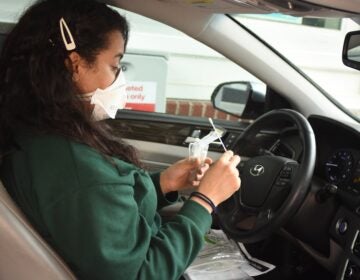The politics of poison ivy

Diagnosing poison ivy is easy. Getting my insurance company to pay for the generic steroid cream to cure it? Not so much.
Getting poison ivy is relatively easy. Just do what I did. Trim a large, vine-infested hedge without wearing gardening gloves. Then wait a few days for itchy, red spots to appear. First on your hands. Then, if you’re like me, they “migrate” to your arms, legs, back, face, neck, and nether regions. When the itch subsided, in its place there were angry, red swellings that looked as if I had been branded.
I went the usual route — straight to Google. I tried every remedy suggested: aloe, calamine, arnica gel, mysterious potions, over-the-counter cortisone, and standing on my head singing “Bridge Over Troubled Water.” Nothing worked.
Well-meaning friends said, “It will go away in a week.” They had said they same thing about Trump. They were wrong. By the end of two weeks, I was desperate for relief.
“Yup. Poison ivy,” said my dermatologist before handing me a prescription for a steroid cream. “This should clear it up within five days.”
When I passed my prescription on to the pharmacist at CVS, I asked how long it would take to fill and what it might cost. I figured with my insurance, it would be $15 to $20 at most.
“Um, 15 minutes,” the woman in the white coat said. “And, uh, $180.”
“WHAT?!”
I asked for the generic. “This is the generic,” she said.
She also told me my Blue Cross insurance didn’t cover it. Stunned, I walked out of CVS without the medication I needed. My disbelief registered on several levels. First, how could any standard skin cream be that expensive? Second, what is wrong with my insurance? Third, I had grown up in my grandparents’ pharmacy and never had to pay for any medication, lipstick, candy bar, or magazine until they closed up shop when I was in my late thirties. I felt betrayed. Not just by Blue Cross, but by the “rigged system” that Bernie and Trump have been yelling about.
When I called Blue Cross, a mild-mannered man who may have been in Philadelphia or Kuwait, offered no explanation for why the steroid cream was not covered. He also informed me that there was no comparable medication that is part of my insurance coverage. Then he did what all customer service representatives are trained to do. He asked me to “hold.”
When he returned from lunch at Chipotle, he said that Blue Cross will make an “exception.” They will call my dermatologist and tell him to expect a faxed form which he will fill out and send back to them. All for the purpose of documenting the “medical necessity” of his prescription.
Wait a sec. My dermatologist is a Board-Certified MD who did his residency at Jefferson and has been in practice for 26 years. Why should he have to document the “necessity” for any prescription to a Blue Cross compliance employee? But let’s go beyond that. What is Blue Cross trying so hard to avoid? Providing the basic prescription coverage they promise? Or are they attempting to foil unscrupulous docs from writing fraudulent prescriptions for small quantities of steroid cream for Russian Olympic athletes?
I didn’t wait to find out. Instead, I called my doctor, explained the story, and stopped by his office the next day to pick up free samples of the medication. While there, his nurse said, “Your insurance company called but they never faxed anything.” Right.
Meanwhile, I found out why a commonly prescribed skin cream is so expensive. Because the three companies that manufactured it were recently acquired by one company, Sandoz. It’s their ball. They can kick it as high as they like.
The Democratic platform promises “to take forceful action to curb prescription drug costs, including letting Medicare negotiate prices …” Earlier this year, Trump said, “When it comes time to negotiate the cost of drugs, we are going to negotiate like crazy.” With all the talk of party disunity in both camps, isn’t it nice to see they can agree on one issue?
Personally, I am not waiting for either candidate to wrestle the pharmaceutical industry into submission. Instead, I’m getting a pair of gardening gloves and buying stock in Sandoz.
WHYY is your source for fact-based, in-depth journalism and information. As a nonprofit organization, we rely on financial support from readers like you. Please give today.




